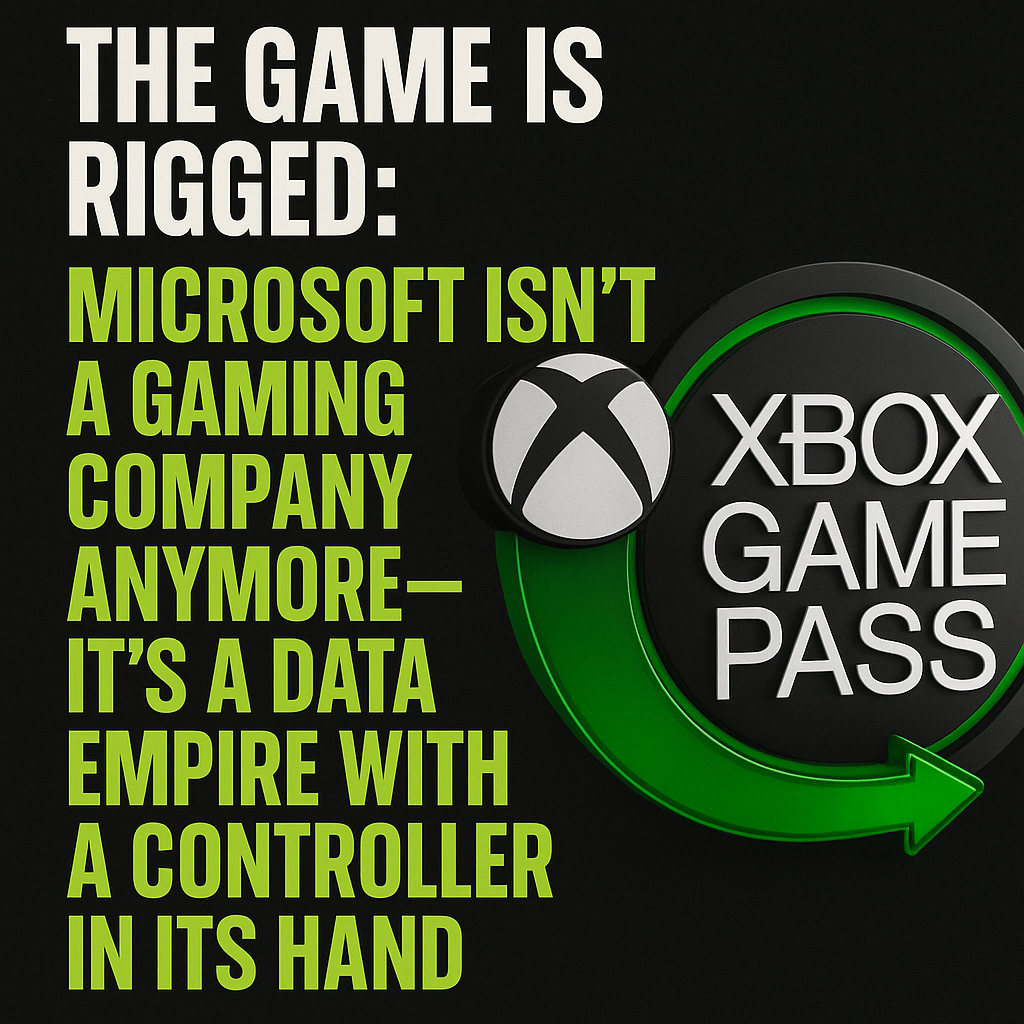Medium
3w
52

Image Credit: Medium
The Game Is Rigged: Microsoft Isn’t a Gaming Company Anymore — It’s a Data Empire with a Controller…
- Microsoft's gaming division, particularly Xbox Game Pass, is designed to harvest data and control user behavior under the guise of providing affordable gaming access.
- The shift towards a subscription model focuses on perpetual engagement and data collection rather than quality game production.
- Game Pass uses psychological triggers like dopamine anticipation, variable rewards, price anchoring, and loss aversion to keep users engaged.
- It serves as a behavioral surveillance tool tracking every aspect of user interaction within its ecosystem to inform advertising and product development.
- Microsoft's acquisitions and Game Pass environment aim to retain users by offering a frictionless, controlling system rather than focusing on creating great content.
- The subscription model of Game Pass reflects a broader trend of eroding ownership in favor of temporary access, shaping user identity and behavior in the process.
- Game Pass, marketed as empowerment and choice, actually embodies a form of behavioral engineering, directing user decisions subtly yet significantly.
- The platform symbolizes a larger shift towards designed dependence where platforms are crafted to shape and extract value from users rather than serve them.
- Microsoft's Game Pass is strategically engineered to capture user behavior, manipulate decisions, and influence psychology, ultimately prioritizing control over entertainment.
- The focus has shifted from gaming to engagement, containment, and surveillance, with Game Pass acting as a tool for mapping and conditioning user behavior.
Read Full Article
3 Likes
For uninterrupted reading, download the app